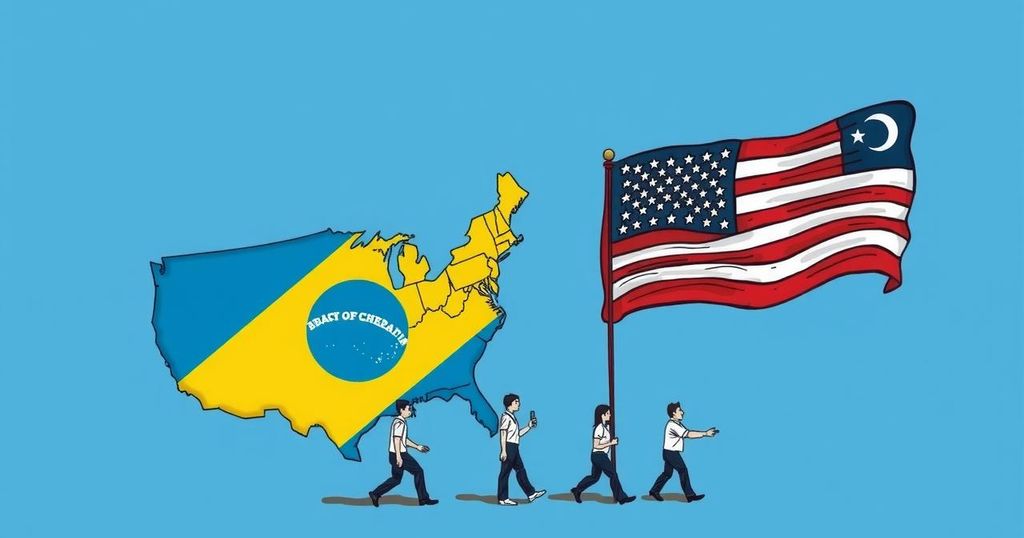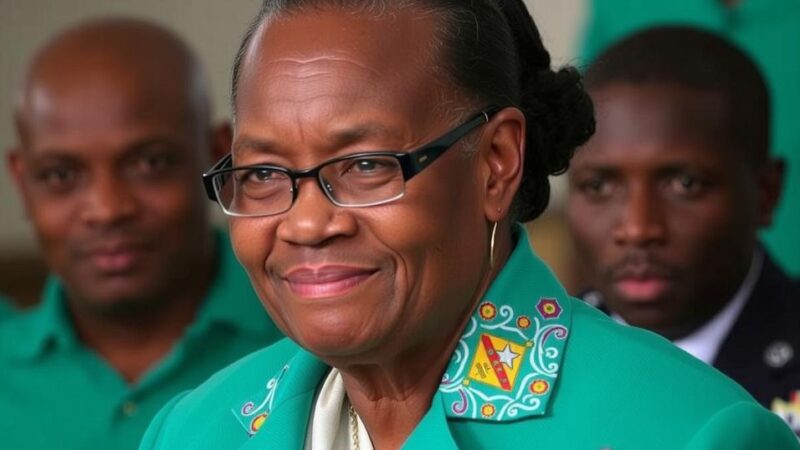Uruguay’s recent elections highlighted a model of civilized political discourse, devoid of polarization and extremism. With a commitment to transparency and respect for democratic processes, the country offers lessons in moderation for larger democracies like Brazil and the USA. The new president aims for pragmatic governance, social reform, and international solidarity, building on a legacy of historical leaders like José Mujica.
In stark contrast to the tumultuous political climates observed in larger democracies like Brazil and the United States, Uruguay exemplifies a model of civilized and moderate electoral practices. The recent election campaign in Uruguay was marked by a lack of polarization, disinformation, and hostility, showcasing a respect for democratic processes rarely seen elsewhere. Candidates engaged in respectful debates, and the election results were promptly and transparently communicated.
The current political landscape in Uruguay features a cycle of power alternation between center-right and center-left parties since the restoration of democracy in 1985. Both the incumbent and opposition candidates displayed a commitment to pragmatism, with an emphasis on governance that respects previous administrations’ achievements. The newly elected president, Orsi, aims to foster relationships with leftist governments in the region while promoting social welfare and private enterprise without undue restrictions.
A historical glance into previous leadership, particularly the tenure of José Mujica, underscores Uruguay’s commitment to modesty and social responsibility. Mujica, known for his austere lifestyle, emphasized pragmatic policies over ideological extremism, as evidenced in his campaign rhetoric against dogmatic political divisions, advocating for a more nuanced approach to governance.
Despite its small economy, Uruguay hosts significant international investments, including the establishment of the TCS office, which highlights its growing role as a hub for business in Latin America. Furthermore, the country is a leader in social reforms, setting precedents in legalizing same-sex marriage and cannabis, and offering insight into progressive governance.
In summary, Uruguay serves as a valuable lesson to countries grappling with issues of far-right extremism and political divisiveness. Its commitment to a respectful political discourse and moderate governance demonstrates that even smaller nations can lead by example in fostering democratic norms.
This article addresses Uruguay’s political landscape, particularly its recent elections, in contrast to more tumultuous democracies like Brazil and the United States. It highlights Uruguay’s approach to governance characterized by moderation, transparency, and civility. The historical context of political leadership in Uruguay and the emergence of its current president, as well as the country’s social reforms, further elucidate the stability and progressive values intrinsic to its governance. It seeks to illustrate the importance of these qualities in fostering strong democracy.
Uruguay’s political journey serves as a significant illustration for larger democracies seeking to combat polarizing ideologies and extremism. Through committed governance marked by transparency, moderation, and social reform, Uruguay exemplifies how nations can maintain civil political discourse. The country’s ability to adapt and prosper amid challenges underscores the fundamental principle that respect and pragmatism can prevail in politics over divisiveness and hostility. The presented framework of governance can inspire others facing similar challenges to embrace civility and cooperation instead of conflict.
Original Source: www.theweek.in







